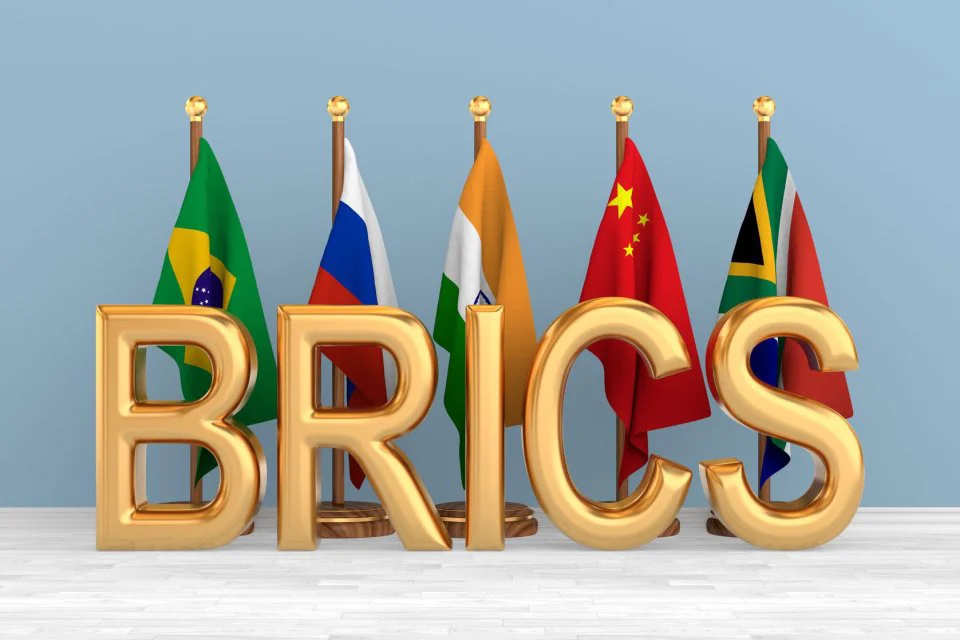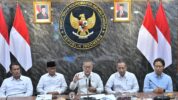Indonesia Joins BRICS, Eyes Potential Russian Oil Imports for Economic Gains
JAKARTA, RAKYAT NEWS – Indonesia’s recent admission as a full member of the BRICS bloc, which includes Brazil, Russia, India, China, and South Africa, has sparked discussions about the potential benefits of closer economic ties within the group.
One notable opportunity that has emerged is the possibility of Indonesia purchasing crude oil from Russia, a move that could have significant implications for the country’s energy security and its geopolitical standing.
Indonesia’s membership in BRICS is seen as a strategic move to strengthen cooperation with other developing countries and to contribute to the reform of global governance. The nation’s large population and growing economy have made it an important player in the global arena.
As a new member, Indonesia is expected to play an active role in promoting economic stability, technological cooperation, and sustainable development within the BRICS framework.
The prospect of buying Russian crude oil has gained attention, especially due to the country’s ability to offer oil at lower prices compared to other oil-producing nations. Russian oil has been available at discounted rates, particularly following the ongoing conflict with Ukraine. This price advantage presents an attractive option for Indonesia, which has been grappling with the challenge of meeting its growing energy demand.
However, while Russian crude may appear to be a cost-effective option, there are several factors that Indonesia needs to carefully evaluate before moving forward. One significant concern is the geopolitical ramifications of such a decision. Purchasing oil from Russia could strain Indonesia’s relations with Western nations, particularly those imposing sanctions on Russia in response to its actions in Ukraine. This may impact Indonesia’s broader diplomatic and trade relationships.
Moreover, the logistics of importing Russian oil pose additional challenges. Due to the sanctions on Russia, oil transportation is complicated, with limited shipping options available. This could lead to higher shipping costs and longer delivery times, which may offset the initial price savings of the oil itself. Additionally, Indonesia’s oil refineries are specifically designed to process certain types of crude oil, meaning that adjustments may be required to accommodate Russian oil, potentially increasing operational costs.
Indonesian officials have indicated a willingness to explore the possibility of importing Russian oil if it proves economically advantageous. Luhut Binsar Pandjaitan, Indonesia’s chief economic minister, suggested that the government is open to buying Russian oil as long as it benefits the country. However, he emphasized the need to approach the matter cautiously, considering the broader geopolitical context and the potential risks involved.
While Indonesian authorities seem open to the idea, experts have warned that the decision to import Russian oil should not be taken lightly. Economic analyst Fahmy Radhi noted that Indonesia needs to carefully assess the compatibility of Russian crude with the country’s refineries, as well as the potential costs of modifying infrastructure. Additionally, the risks associated with purchasing oil from a country facing international sanctions cannot be ignored, especially when considering the long-term impact on Indonesia’s global trade relationships.
Indonesia’s decision to explore importing Russian oil highlights the complexities of balancing economic interests with geopolitical considerations. While the price advantage of Russian oil is undeniable, the risks associated with transportation, refinery compatibility, and diplomatic relations with Western nations must be thoroughly evaluated.
Indonesia’s membership in BRICS offers opportunities for closer collaboration with developing countries, but careful deliberation is required to ensure that any decisions made will be in the nation’s long-term best interest. (Uki Ruknuddin)



























Tinggalkan Balasan